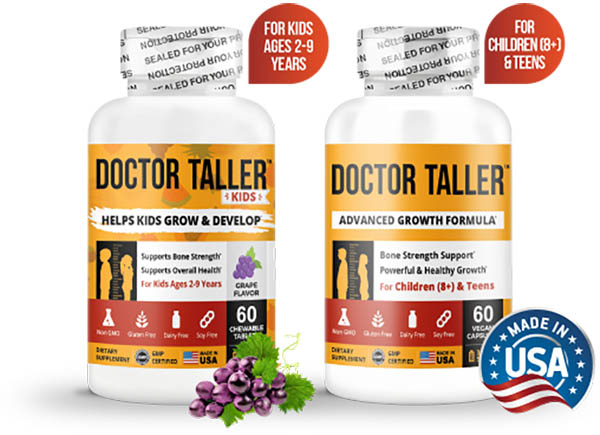You see, in my years writing about adolescent nutrition over at Deliventura, one question pops up more than you’d think: “Does caffeine stunt your child’s growth?” And honestly? I get it. You’re pouring your third cup of coffee just to survive the school run, and suddenly your kid wants a sip—or worse, their own iced latte. Naturally, alarm bells go off.
Caffeine is everywhere in American life—energy drinks, sodas, chocolate milk, even those trendy bottled teas. According to the CDC and FDA, nearly 73% of kids and teens consume some form of caffeine every day. No wonder the myth stuck around.
But is it just a myth… or is there something to it? Let’s dig into what the science really says about caffeine and height, how it affects growth rate, bone development, and whether your teen’s coffee habit is actually worth worrying about.
What is caffeine?
Caffeine is a natural stimulant belonging to the xanthine class of compounds. It is commonly found in various beverages such as coffee, tea, energy drinks, and sodas. Caffeine works by blocking adenosine, a neurotransmitter responsible for promoting relaxation and drowsiness in the brain. As a result, it increases alertness and temporarily wards off fatigue. Caffeine is widely consumed worldwide and is known for its ability to provide a sense of wakefulness and heightened energy levels. However, it’s important to consume it in moderation to avoid potential adverse effects on health.

The caffeine content in various types of food
Here’s a list of various types of food and their approximate caffeine content:
Coffee:
- 8 oz (240 ml) brewed coffee: 95 mg to 165 mg
- 8 oz (240 ml) instant coffee: 63 mg
- 8 oz (240 ml) decaffeinated coffee: 2 mg to 5 mg
Tea:
- 8 oz (240 ml) black tea: 40 mg to 70 mg
- 8 oz (240 ml) green tea: 20 mg to 45 mg
- 8 oz (240 ml) white tea: 15 mg to 30 mg
- 8 oz (240 ml) oolong tea: 30 mg to 50 mg
- 8 oz (240 ml) herbal tea (caffeine-free): 0 mg
Soft Drinks:
- 12 oz (355 ml) cola: 34 mg to 46 mg
- 12 oz (355 ml) diet cola: 0 mg (usually caffeine-free)
- 12 oz (355 ml) energy drinks: 70 mg to 200 mg
- 12 oz (355 ml) iced tea: 26 mg to 47 mg
Chocolate:
- 1 oz (28 g) dark chocolate: 20 mg to 60 mg
- 1 oz (28 g) milk chocolate: 1 mg to 15 mg
Energy Bars and Snacks:
- Caffeinated energy bars: 50 mg to 100 mg (can vary widely)
- Chocolate-covered coffee beans: 7 mg to 12 mg per bean
Ice Cream:
- 1 cup (240 ml) coffee-flavored ice cream: 30 mg to 45 mg
Medications:
- Over-the-counter caffeine pills: 100 mg to 200 mg per pill
Is there a link between caffeine consumption and height growth?
There is no scientific evidence to suggest that caffeine has a direct impact on a person’s height. Height is primarily determined by genetic factors, and while nutrition and overall health can play a role in growth during childhood and adolescence, caffeine consumption itself is not known to affect a person’s final height.
During childhood and adolescence, proper nutrition, including sufficient intake of essential vitamins and minerals, is important for healthy growth and development. However, caffeine consumption in moderate amounts is generally considered safe for most people, including children and teenagers. Moderate caffeine intake is typically defined as around 100-200 mg per day for adults, and lower for younger individuals.
Excessive caffeine consumption, like consuming very high amounts regularly, may lead to various health issues and may interfere with sleep, which is crucial for overall growth and development in children and teenagers. It is essential for individuals, especially younger ones, to consume caffeine-containing beverages and foods in moderation.
If you have concerns about your child’s growth or any other health-related questions, it is always best to consult with a pediatrician or a healthcare professional for personalized advice and guidance.
Other health benefits of caffeine
While caffeine is commonly known for its ability to provide a temporary boost in energy and alertness, it has been associated with several other potential health benefits. It’s important to note that individual responses to caffeine may vary, and excessive consumption can lead to negative effects. Here are some of the reported health benefits of caffeine:
- Improved cognitive function: Caffeine has been shown to enhance mental alertness, concentration, and cognitive performance. It may also improve mood and reduce the risk of depression in some individuals.
- Enhanced physical performance: Caffeine can increase adrenaline levels, which may lead to improved physical performance during exercise or sports activities. It has been used by athletes as an ergogenic aid to enhance endurance and reduce perceived effort during high-intensity workouts.
- Antioxidant properties: Caffeine is a potent antioxidant that can neutralize free radicals and reduce oxidative stress in the body. This may have potential benefits for overall health and could help protect against certain chronic diseases.
- Potential neuroprotective effects: Some studies suggest that caffeine may have neuroprotective properties, possibly reducing the risk of neurodegenerative conditions such as Alzheimer’s and Parkinson’s diseases.
- Asthma relief: Caffeine can act as a bronchodilator, helping to relax and open the airways. It is sometimes used as an adjunct treatment for asthma and other respiratory conditions.
- Liver health: Some research indicates that moderate coffee consumption may be associated with a reduced risk of liver diseases such as cirrhosis and liver cancer.
- Reduced risk of certain diseases: Regular consumption of moderate amounts of caffeine has been linked to a decreased risk of certain conditions, including type 2 diabetes, stroke, and certain types of cancer, such as colorectal and endometrial cancers.
- Headache relief: In some cases, caffeine can alleviate headaches and migraines, which is why it is an ingredient in some over-the-counter pain medications.

Does drinking too much caffeine have a negative impact on health?
Drinking too much caffeine can indeed have negative effects on health. While moderate caffeine intake is generally considered safe for most people, excessive consumption can lead to various health problems. Some potential negative effects of consuming too much caffeine include:
- Insomnia and sleep disturbances: High doses of caffeine can interfere with sleep patterns, leading to difficulty falling asleep or staying asleep.
- Increased heart rate and palpitations: Caffeine is a stimulant that can cause the heart to beat faster, which may be problematic for those with certain heart conditions.
- Anxiety and nervousness: High caffeine intake can trigger or worsen anxiety and nervousness in some individuals.
- Digestive issues: Excessive caffeine consumption can lead to stomach upset, acid reflux, and even diarrhea.
- Dependency and withdrawal symptoms: Regular consumption of large amounts of caffeine can lead to dependency, and abrupt cessation may result in withdrawal symptoms like headaches, fatigue, and irritability.
- High blood pressure: Some individuals may be more sensitive to the blood pressure-raising effects of caffeine, which can be concerning for people with hypertension or those at risk of developing it.
- Osteoporosis: Excessive caffeine intake may interfere with calcium absorption, potentially increasing the risk of osteoporosis, a condition characterized by weakened bones.
- Pregnancy complications: Pregnant women are generally advised to limit caffeine intake as high amounts have been associated with an increased risk of miscarriage and low birth weight.
It’s important to note that individual tolerance to caffeine varies, and some people may be more sensitive to its effects than others. Generally, moderate caffeine consumption (around 400 mg per day, which is roughly equivalent to four 8-ounce cups of brewed coffee) is considered safe for healthy adults. However, for some individuals, even lower amounts may cause adverse effects.
If you are concerned about your caffeine intake or experience any negative symptoms related to it, it’s a good idea to consult a healthcare professional for personalized advice.
Conclusion
In conclusion, while caffeine consumption can influence certain aspects of health, its impact on height growth is still a topic of ongoing research and debate. Genetics and overall lifestyle habits play a more significant role in determining an individual’s final height potential. For teenagers, it is crucial to maintain a balanced diet, get enough sleep, and engage in regular physical activity to support healthy growth. Remember, moderation is key when it comes to consuming caffeine or any other stimulant. Always consult with a healthcare professional for personalized advice on nutrition and health during adolescence.
FAQs (Frequently Asked Questions)
Does drinking coffee stunt your growth?
No, drinking coffee in moderation is unlikely to stunt your growth. However, excessive caffeine consumption may have adverse effects on bone health and overall growth.
At what age do humans stop growing taller?
For most individuals, the growth plates in the long bones fuse around the age of 18 to 25, marking the end of significant height growth.
Can caffeine affect bone density in adults?
Excessive caffeine consumption, combined with other lifestyle factors, may potentially impact bone density in adults. However, more research is needed in this area.
Is it safe for teenagers to consume caffeine?
Teenagers can consume caffeine in moderation as part of a balanced diet. However, excessive caffeine intake should be avoided.
What are some caffeine-free alternatives for energy boosts?
If you prefer to avoid caffeine, alternatives like herbal teas, regular exercise, and a well-balanced diet can provide natural energy boosts.
- Related post: How to Increase Height by 4 Inches



